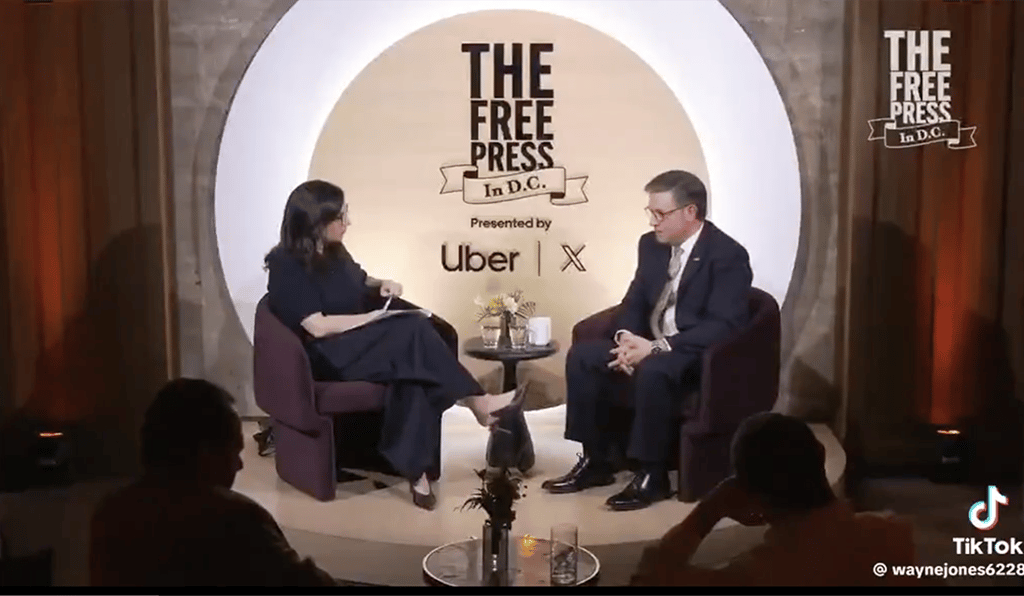The LNG Export Fiasco: A Political Misstep or a Policy Debate We Can’t Ignore?
5/6/20254 min read


The LNG Export Fiasco: A Political Misstep or a Policy Debate We Can’t Ignore?
Introduction: A Viral Misunderstanding Sparks a Bigger Conversation
On May 4, 2025, a TikTok clip shared on X by user @Suzierizzo1 went viral, claiming House Speaker Mike Johnson admitted that Donald Trump had no idea what he was signing in executive orders. The post, viewed by thousands, seemed to confirm suspicions about Trump’s leadership—until the replies rolled in. Turns out, Johnson was talking about Joe Biden, not Trump, and the issue at hand was a 2024 pause on LNG (liquefied natural gas) exports to Europe. This mix-up isn’t just a lesson in fact-checking; it’s a window into a heated energy policy debate that affects us all. Let’s unpack what happened, why it matters, and what it means for America’s energy future.
The Viral Post: What Really Happened?
The original post featured a dramatic TikTok screenshot of Mike Johnson, with bold text reading, “HE GRABS MY ARM… why does the party put up with this madness?” @Suzierizzo1 claimed this was proof of Trump’s incompetence, tagging Rep. Jasmine Crockett to amplify the message. But multiple X users quickly corrected the record: Johnson’s comments, from a January 2025 interview with Bari Weiss for The Free Press, were about Biden. Johnson recounted asking Biden why he paused LNG exports to Europe, to which Biden allegedly replied, “I didn’t do that”—despite signing the order three weeks earlier. This anecdote, meant to highlight Biden’s supposed disconnect, was flipped into a false narrative about Trump.
The LNG Export Pause: A Policy with Real Stakes
So, what’s the deal with LNG exports? In January 2024, Biden paused approvals for new LNG export projects, a move cheered by climate activists but criticized by energy industry advocates. According to a Reuters report, the pause aimed to review the economic and environmental impacts of LNG exports, which had tripled since 2018 to 12 billion cubic feet per day. The decision didn’t halt ongoing exports but delayed new projects, potentially until after the 2024 election. Biden framed it as a response to the “climate crisis,” ensuring exemptions for national security needs, like supporting European allies amid Russia’s invasion of Ukraine.
However, the pause stirred controversy. The IEEFA notes that U.S. LNG exports, especially after Russia’s 2022 invasion of Ukraine, have tied domestic natural gas prices to volatile international markets. A chart shared by X user @pool_ned shows residential natural gas prices spiking alongside LNG exports since 2015, hitting U.S. households hard. Critics like
@RobinMelz on X pointed out that Biden didn’t stop exports entirely—he oversaw record LNG exports—but the pause on new permits was a calculated move to study long-term impacts.
The Political Fallout: Misinformation Meets Energy Reality
The X thread reveals a deeper issue: political narratives often overshadow facts.@Suzierizzo1’s post, while incorrect, resonated with those skeptical of Trump’s leadership, gaining traction before being debunked. Replies like @SandraKrafczek’s (“HE WAS TALKING ABOUT BIDEN. Nice try tho ”) and @PhilipsTruthTM’s (“You are extremely gullible and naive, at best…”) show how quickly misinformation can spiral. Yet, the real story—Biden’s LNG pause and Johnson’s critique—raises valid questions about leadership and policy. Was Biden truly unaware of the order, as Johnson claims? Or is this a Republican talking point to undermine him?
On the flip side,@RobinMelz countered that Biden’s pause was misrepresented: it only affected new projects, not existing exports, and Trump’s tariffs have arguably hurt energy exports more. This back-and-forth reflects a polarized debate: should the U.S. prioritize energy independence and global alliances, or focus on climate goals and domestic price stability?
Why This Matters to You
The LNG export debate isn’t just political theater—it hits your wallet and the planet. Rising natural gas prices, as noted by the IEEFA, mean higher utility bills for Americans, especially as exports are set to double by 2030. Meanwhile, environmentalists argue that LNG, while cleaner than coal, still fuels climate change. Europe, reliant on U.S. LNG since the Nord Stream pipeline explosion, needs these exports to avoid energy crises. Balancing these priorities is tricky, and the next administration will have to decide: ramp up exports or double down on renewables?
What’s Next for U.S. Energy Policy?
With Trump back in office in 2025, the LNG pause is likely history. His administration has historically favored fossil fuel expansion, and Johnson’s comments suggest Republicans will push for unrestricted exports. However, the economic and environmental concerns Biden’s team raised won’t disappear. As the U.S. navigates its role as a global energy leader, we’ll need policies that address both immediate needs—like supporting allies—and long-term goals, like reducing emissions.
Final Thoughts: Let’s Keep Talking
This X post gone wrong reminds us how easily misinformation can derail important discussions. The LNG export debate is complex, with no easy answers. It’s about more than who knew what—it’s about the future of energy, climate, and global stability. So, let’s dig deeper and ask the tough questions.
Thought-Provoking Questions for Readers:
Do you think the U.S. should prioritize energy exports to support allies, even if it means higher prices at home?
How much responsibility should leaders like Biden or Trump take for understanding every executive order they sign?
What’s the right balance between fossil fuel exports and investing in renewable energy for the future?
We’d love to hear your thoughts in the comments below!
hello@boncopia.com
+13286036419
© 2025. All rights reserved.